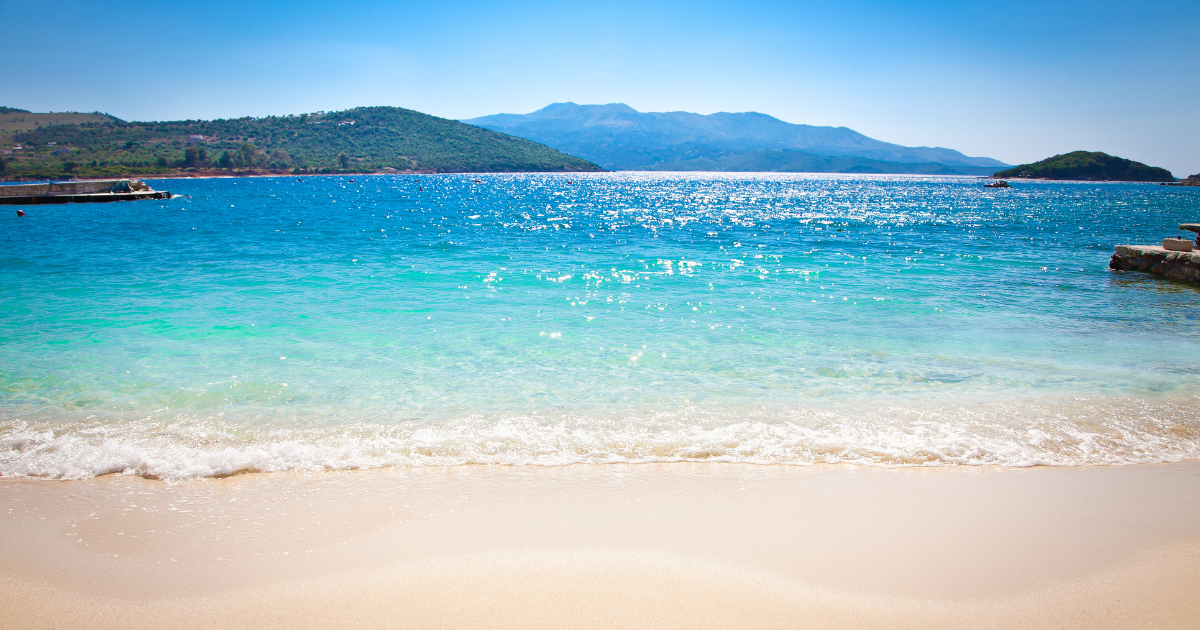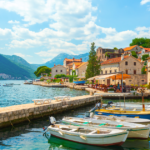Last Updated on June 13, 2024 by Rikki
Looking for eco-friendly travel options in Europe? Look no further! The Sustainable Travel Index 2023, conducted by Euromonitor International, has ranked the top ecotourism destinations in Europe.
According to the index, European destinations are among the most environmentally friendly in the world, and many travelers are willing to pay more for a sustainable vacation. The top-ranked city is Melbourne, Australia, followed by Madrid and Seville in Spain. Additionally, 17 countries in Europe made it to the top of the index, including Sweden, Finland, and Austria.
With the growing shift towards environmentally conscious tourism, travelers are increasingly willing to spend extra for eco-friendly experiences, such as nature trips, volunteering, and choosing alternative modes of transportation.

Top Ecotourism Destinations in Europe
Europe is home to some of the most breathtaking landscapes and diverse ecosystems in the world, making it a perfect destination for ecotourism. Ecotourism, also known as sustainable tourism, focuses on visiting natural areas while conserving the environment and improving the well-being of local communities.
In recent years, there has been a growing demand for ecotourism experiences as travelers become more conscious of their impact on the environment. In this article, we will explore the top ecotourism destinations in Europe that offer stunning natural beauty, sustainable accommodations, and unique experiences that will leave you in awe.
1. Sweden
Sweden, known for its pristine natural beauty, is a leader in sustainable tourism practices. With over 30 national parks and countless nature reserves, Sweden offers a wide range of ecotourism opportunities. From exploring the remote wilderness of Swedish Lapland to hiking through the ancient forests in Dalarna, there is something for every nature enthusiast in Sweden. The country is also home to sustainable accommodations such as eco-lodges and eco-friendly hotels that allow you to experience the beauty of nature without leaving a large carbon footprint.
2. Finland
Finland is another top ecotourism destination in Europe, especially for those who love winter activities. Lapland, located in the northernmost part of Finland, offers a winter wonderland experience with its snow-covered landscapes and the opportunity to witness the mesmerizing Northern Lights. The country is also home to the Archipelago National Park, where you can explore the unique island ecosystems and enjoy sustainable boating tours. Finland’s commitment to sustainability is evident in its eco-friendly wildlife encounters, such as reindeer safaris and watching brown bears in their natural habitats.
3. Austria
Austria, famous for its stunning Alpine landscapes, is a perfect destination for nature lovers. The country boasts several Alpine conservation areas, such as Hohe Tauern National Park and Gesäuse National Park, where you can hike, bike, or simply enjoy the breathtaking views. Austria is also known for its green cities, particularly Vienna and Salzburg, which offer sustainable transportation options, green spaces, and eco-friendly accommodations. If winter sports are your passion, Austria provides opportunities for eco-friendly skiing, snowboarding, and other winter activities.
4. Estonia
Estonia, a hidden gem in Northern Europe, is rapidly gaining popularity as an ecotourism destination. The country is rich in natural wonders, including bogs and wetlands, which you can explore through guided eco-tours. Estonia is also committed to sustainable tourism practices, with a wide range of eco-friendly accommodations available, such as eco-lodges and guesthouses. Don’t miss the chance to visit the unique islands of Estonia, such as Saaremaa and Hiiumaa, where you can enjoy unspoiled nature and learn about local traditions.
5. Portugal
Portugal, with its diverse ecosystems and stunning coastline, offers a wide range of ecotourism experiences. The Ria Formosa Natural Park, located in the Algarve region, is a must-visit destination for birdwatchers and nature enthusiasts. Portugal is also known for its sustainable wine tourism in the Douro Valley, where you can visit vineyards and wineries that prioritize organic and biodynamic practices. The country is actively involved in conservation projects and wildlife sanctuaries, giving you the opportunity to learn about local flora and fauna.
6. Spain
Spain, known for its beautiful beaches and vibrant culture, is also emerging as a sustainable tourism destination. Andalusia, in particular, offers a sustainable gem with its diverse landscapes, including the Sierra Nevada National Park and Doñana National Park. These areas are home to unique ecosystems and a wide variety of wildlife. Spain also boasts biosphere reserves, such as Lanzarote and Menorca, which are protected areas focused on sustainable development. Additionally, Spain has many eco-friendly beaches and coastal areas that promote responsible tourism practices.
7. Germany
Germany, with its rich natural heritage and commitment to sustainability, is an ideal ecotourism destination. The Black Forest, located in southwestern Germany, offers a perfect blend of nature and sustainability. Hiking and cycling routes allow visitors to explore the lush green forests and stunning waterfalls while minimizing their carbon footprint. Germany is also home to sustainable cities such as Berlin and Hamburg, which promote green transportation options, energy-efficient buildings, and organic food markets.
8. Norway
Norway, with its majestic fjords and untouched wilderness, is a paradise for nature lovers. The country is known for its strict conservation policies, ensuring that the natural beauty and biodiversity are preserved. Norway offers various ecotourism activities, such as hiking, kayaking, and wildlife watching. Sustainable accommodations, such as eco-lodges and cabins, allow visitors to immerse themselves in nature while minimizing their impact on the environment. Don’t miss the chance to explore Norway’s stunning national parks, including Jotunheimen National Park and Hardangervidda National Park.
9. Switzerland
Switzerland, famous for its snow-capped mountains and pristine lakes, is a top destination for sustainable tourism. The country’s commitment to preserving its natural beauty can be seen in its well-preserved hiking and cycling trails that allow visitors to explore the stunning landscapes. Switzerland is also home to eco-friendly accommodations and ski resorts that implement sustainable practices such as energy conservation and waste management. Whether you visit during summer or winter, Switzerland offers plenty of opportunities to connect with nature in an environmentally friendly way.
10. Scotland
Scotland, with its rugged landscapes and rich cultural heritage, offers unique ecotourism experiences. From exploring the picturesque Scottish Highlands to spotting marine wildlife on the Isle of Mull, Scotland is a haven for nature enthusiasts. The country is committed to sustainable tourism practices, with many eco-friendly accommodations and conservation projects. Scotland also offers various outdoor activities such as hiking, mountain biking, and kayaking, allowing visitors to experience the beauty of its natural landscapes while minimizing their impact on the environment.
Conclusion
The demand for ecotourism in Europe has been steadily growing as travelers become more conscious of their impact on the environment. The top ecotourism destinations in Europe, such as Sweden, Finland, Austria, Estonia, Portugal, Spain, Germany, Norway, Switzerland, and Scotland, offer stunning natural beauty, sustainable accommodations, and unique experiences that cater to responsible travelers.
By choosing these destinations and practicing responsible tourism, you can contribute to the preservation of the environment and support local communities and conservation efforts. So, pack your bags and embark on an unforgettable eco-friendly adventure in Europe.
Alternatively, if you’re looking for statistics about the best European cities to visit in winter then you may prefer this article regarding a 2023 study by the prestigious Euromonitor International.


















